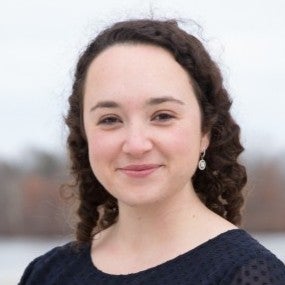By Laurel Zigerelli, J.D. ’22
Participating in the Government Lawyer clinic was the perfect capstone to my time at HLS.
As part of the United States Attorney’s Office in Boston, I had a front row seat to all stages of the federal criminal justice system, from the earliest stages of an investigation to post-conviction appeals. I learned how federal prosecutors and law enforcement partners pursue leads and gather evidence. Once the evidence had been obtained, I conducted legal research to assist prosecutors in deciding what charges to bring in an indictment, or whether an indictment should be brought at all. If the case moved forward, sometimes the prosecutor approached the defendant with a plea bargain. I observed how the bargaining process is a delicate negotiation between the defendant, defense counsel, and the prosecutor. Other times, the case proceeded to trial. I saw how trials can be quite unpredictable, requiring flexibility to research and respond to unexpected issues as they arise.
A prosecutor’s job does not just end at the conclusion of a trial. If the trial resulted in a conviction, the case would proceed to sentencing. The sentencing stage generated all sorts of complex legal issues that I explored, including reasons underlying the proposed sentence and whether different enhancements should be applied or not. Even after sentencing, a defendant has opportunities to challenge a conviction, requiring the prosecutor to carefully review their case, reflect, and respond to the defendant’s arguments. Each stage of the criminal case gave me opportunities to hone my research and writing skills. I am grateful to the incredibly talented attorneys that I worked with for teaching me how to make creative, persuasive arguments.
Overall, the clinic educated me about the important roles the various actors—prosecutors, law enforcement, defendants, defense counsel, witnesses, judges, jurors, court staff, probation officers, and more—all play in the life of a criminal case. Though we speak often of the “adversarial system” in law school classes, I found criminal cases to be very collaborative: everyone was working toward the best outcome for both the individual defendant and the community. Certain moments could be tense or frustrating for those involved, but ultimately cases were guided by the pursuit of justice.
Not only did I learn more about federal prosecution through the clinic, but I also learned a great deal about practicing in a federal district court. This semester, the United States District Court for the District of Massachusetts held proceedings over video and in-person. Observing motion hearings, trials, sentencings, and more both virtually and live taught me about the opportunities and challenges that each format presents. Furthermore, being able to debrief a proceeding with a prosecutor right after its conclusion gave me a unique insight into how experienced oral advocates think and work.
Thank you to Professor Alex Whiting, HLS, and the United States Attorney’s Office for a transformative clinic experience. I am excited to start my legal career equipped with the skills, guidance, tips, and friends I gained this semester.
Filed in: Clinical Student Voices
Contact Office of Clinical and Pro Bono Programs
Website:
hls.harvard.edu/clinics
Email:
clinical@law.harvard.edu
